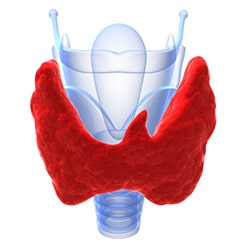Endometrial Cancer Treatment

Endometrial cancer affects many women across the world. Like all forms of cancer, this condition can range from entirely treatable to terminal. The right testing and treatment can make all of the difference when dealing with endometrial cancer. Endometrial cancer is sometimes known as uterine cancer or uterus cancer.
Dealing with cancer is never easy. Request help today: call or contact us online for more information.
Endometrial Cancer Causes
There is no easy medical explanation for why endometrial cancer occurs. Unlike other forms of cancer, it cannot be sourced to a specific habit or lifestyle choice. Endometrial cancer itself occurs when an abnormal growth forms on the endometrium.
The endometrium is semi-solid lining of the uterus. When an abnormal growth occurs on it, it is known as an endometrial tumor. While some endometrial tumors are completely benign or non-cancerous, others indicate cancer.
Certain risk factors make a person more likely to suffer from endometrial cancer. These include:
- Family history
- Advanced age
- Obesity
- Early menstruation
Endometrial Cancer Symptoms
Compared to many other cancers, endometrial cancer has many quickly apparent symptoms. Because of this, endometrial cancer is often detected at an early stage. Like all cancers, endometrial cancer is staged, with stage 1 being the least severe and stage 5 being terminal.
Early symptoms of endometrial cancer include:
- Post-menopausal vaginal bleeding
- Painful sex
- Pelvic pain
- Excessive vaginal bleeding
As the condition progresses, it can lead to other symptoms such as nausea and general malaise. Because cancer survival rates dramatically increase with early treatment, it’s important to report any symptoms as soon as possible.
Endometrial Cancer Treatment
Endometrial cancer treatment starts with testing and diagnosis. Most often this involves the use of pelvic examination, ultrasound and other advanced methods to determine if a tumor is present. If a tumor is found, a biopsy is performed to determine if the growth is cancerous.
Once endometrial cancer is diagnosed, there are several types of treatment available depending on the stage of the condition. Types of endometrial cancer treatment include:
- Surgery: If possible, the best method of action is to completely remove the endometrial tumor before the cancer can spread. This can involve just the tumor being removed, or more commonly the entire uterus. This is called a hysterectomy.
- Radiation therapy: As with most forms of cancer, radiation treatment and chemotherapy can be used to try and destroy cancerous cells. This can be delivered intravenously or through the use of an external radiation machine.
- Hormone therapy: When the cancer has moved beyond the endometrium, hormonal medicines can be useful in stopping further spread. This method is typically combined with one or both of the others.
Request Endometrial Cancer Information Today
Endometrial cancer is a serious, and possibly fatal, condition. Request more information about treatment now: call or contact us online.




